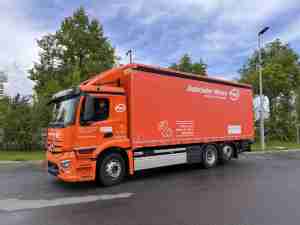United Parcel Service Inc.’s union ratified a five-year labor agreement for employees—even though a majority of members who voted turned it down.
The 54 percent “no” vote wasn’t enough to block the deal under union rules since less than half the membership turned out to cast ballots, the International Brotherhood of Teamsters said in an emailed statement. With such low participation, two thirds of workers would have had to oppose the deal for the rejection to be valid, the union said.
“Thus, the National Master Agreement has been ratified,” the Teamsters said.
The approval of the contract despite majority opposition raises the risk of a worsening clash between factions within the Teamsters, potentially stoking labor turmoil for UPS. The uncertainty comes as the courier is rushing to lower the cost of home deliveries and cash in on booming e-commerce. UPS is trying to keep costs competitive with nonunion rivals, including FedEx Corp. and Amazon.com Inc., which is starting its own delivery service.
The Teamsters leadership, despite approving the contract, said it “fully intends to demand that UPS return to the negotiating table to address a number of member concerns.” Only 44 percent of the 209,000 eligible union members voted.
‘Next Steps’
UPS said it would be “meeting with the Teamsters in the near future to discuss the next steps.” The Atlanta-based company is already ramping up operations for the busy year-end holiday season.
A separate deal covering UPS freight workers was rejected with significant turnout and can’t be ratified, the Teamsters said.
The popularity of the Teamsters leadership and General President Jim Hoffa has waned. In a 2016 general election, Hoffa barely beat back a challenge from Fred Zuckerman for his post. Zuckerman and the Teamsters for a Democratic Union were vocal critics of the agreement.
For drivers, the contract ratified by the union leadership creates a new hybrid class of weekend drivers who also load packages and earn less than current parcel drivers.
“You would create a permanent underclass of drivers who are paid less money and have fewer rights to do the same job,” said David Levin, a leader at the Teamsters for a Democratic Union.
Home deliveries weigh on efficiency because drivers typically handle fewer parcels per stop than at businesses. UPS plans to spend more than $20 billion in the three years through 2020 on new planes, labor-saving technology and other infrastructure.










